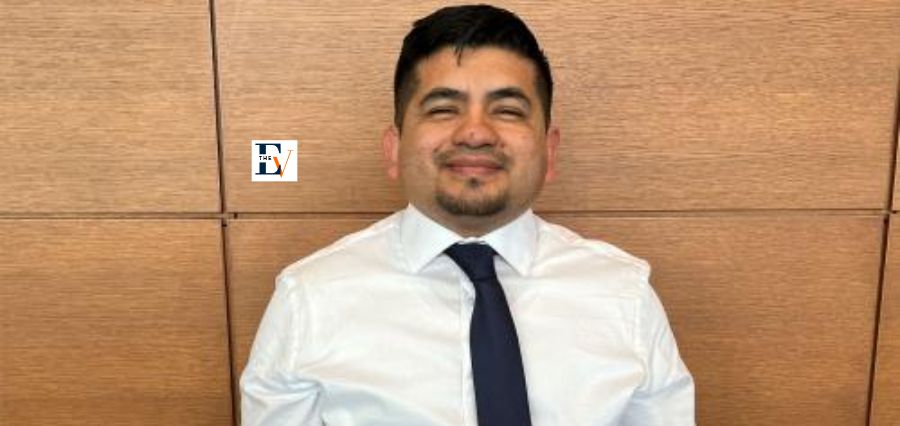Animals bring a lot of delight. One of the most rewarding experiences in life is having a pet at home. But in today’s interconnected world, diseases can spread further and faster than ever before.
A health threat anywhere can be a health threat everywhere. World organizations like the Food and Agriculture Organization of the United Nations (FAO), the World Organisation for Animal Health (OIE), the United Nations Environment Programme (UNEP) and the World Health Organization (WHO) are working together to mainstream ‘One Health’ so that they are better prepared to prevent, predict, detect, and respond to global health threats.
Like humans, all animals deserve to live with respect and care. When humans coexist with wildlife, we safeguard ecosystem health, agricultural stability, food security, and the creation of new sustainable economies. Coexistence with wildlife is essential for all life, humans and animals alike.
Veterinarians are animal-specific medical professionals that specialize in caring for and curing ailments in animals.
Veterinarians have a lot of responsibility since they look after the health of pets and other animals. They diagnose the animal’s condition and treat them to ensure that they are in good health.
As animals cannot explain their pain, it is important for veterinarians to give an appropriate diagnosis and pain management. As public awareness of animal welfare is growing, the government is financing youth education programmes that teach youngsters about animals.
There are a lot of people who love animals and are inclined to adopt them. It is important for pet owners to be able to understand their animals’ behaviour and patterns and recognize if their animal is in pain. The role of the veterinarian is very crucial in helping owners understand these patterns of behaviour.
Numerous universities are offering specialized degrees in order to address the growing demand for veterinarians. Similar to this, the University of Nicosia (UNIC) School of Veterinary Medicine in Cyprus adopts teaching methods that enable students to comprehend the emotions, pain, and behaviour of animals.
We came across the institution while looking for The Best School to Study Veterinary Medicine in 2023, and we spoke with Professor Michael Herrtage, Interim Dean and Programme Director of the UNIC School of Veterinary Medicine. Professor Herrtage told The Education View about the exciting and innovative curriculum and how the programme is designed to offer first-class scientific and clinical training in veterinary medicine.
An Inceptional Tale
Having worked for most of Michael’s career in the Veterinary School at the University of Cambridge and as Dean of the Vet School for the final 14 years, the university has a good insight into veterinary education. The opportunity to design a veterinary course from scratch gave it a unique chance to hone all the best practices for veterinary education from around the world and to include the comments from generations of students in a pioneering veterinary course at the University of Nicosia. The innovative course provides a strong grounding in the basic sciences that underpin the paraclinical and clinical aspects of veterinary medicine whilst introducing the teaching of live animal handling and husbandry in the first semester.
The University of Nicosia is devoted to teaching, research, innovation, sustainability, societal involvement, and cultural contribution. UNIC is one of the top comprehensive research-oriented universities in the Mediterranean region. More than 14,000 students from more than 100 countries attend the university’s more than 100 traditional face-to-face (on campus) and distance learning online programmes at the bachelor’s, master’s, and doctoral degree levels.
UNIC engages in a significant amount of top-notch research that helps society on a local, national, and international level. In addition to being recognized for their contributions to the development and advancement of knowledge and technology transfer, the teaching and research staff of the university excel in a wide range of academic fields with a focus on the impact of emerging technologies from the Fourth Industrial Revolution on society.
The university’s commitment to putting the ‘Knowledge Square’ into practice by actively collaborating with research institutions, businesses, and society, guarantees that the programmes are created and improved in close coordination with relevant stakeholders. Programmes developed as a result of this approach are approved by the appropriate professional bodies, answer industry needs, and appropriately prepare graduates for a global career in the modern, changing workplace.
Excellent outcomes in worldwide rankings reflect the University’s academic stature and attitude toward the world. The Times Higher Education (THE) World University Rankings 2023 indicate that UNIC is among the top 2 percent of universities worldwide.
Commitment
The university is committed to the improvement and promotion of the health and well-being of animals, people and ecosystems we share through the provision of innovative, student centred and high-quality education, which is based on the best available evidence in current veterinary education. The university is also committed to systematically fostering original research in the basic, veterinary and animal welfare sciences and to serving and improving the health of animals through community services. It aims to produce competent graduates committed to life-long learning who can pursue further training in their field of choice and will be competent and successful veterinarians, teachers, administrators and researchers.
Innovative Curriculum
Professor Herrtage says that veterinary medicine has provided him with an exciting, fulfilling and everchanging career. When he looks back at the state of veterinary medicine and when he qualified the same, nearly everything has changed. Investigations were primitive in comparison to today, and the use of technology was almost non-existent. Students of today will have to adapt to a fast-changing world during their careers, and their basic science training will enable them to embrace these new technologies and develop their problem-solving skills to cope with the advancement of veterinary science.
The newly established School of Veterinary Medicine has created a brand-new, interesting, and innovative curriculum that spans the whole five-year programme.
The programme has a strong basic science component that supports all aspects of clinical veterinary practice. Graduates will be equipped with the information and abilities necessary for lifelong learning, allowing them to advance professionally throughout their careers in any area of veterinary medicine they choose.
Commencing early in the course and continuing throughout the first four years, the development of practical skills involving animals and communication with owners results in a clinicall y-immersed final year in which students engage in veterinary practice while being directly supervised by veterinarians from all specialities and levels of care.
Professionals who are subject matter experts and many of whom have ongoing research projects teach the course, ensuring that it is both current and relevant. One Health, evidence-based medicine, the development of diagnostic abilities through clinical problem-solving and critical thinking, and the development of practical clinical skills in specialised laboratory settings before their application in practice are stressed.
Special Contribution in the Field
The University of Nicosia has provided the financial backing for the development of veterinary medicine as part of its holistic commitment to the concept of One Health.
Training alongside medicine and other health professions provides a dynamic environment for both teaching and research.
The highest standards for veterinary medicine education are upheld by the School of Veterinary Medicine. An International Advisory Committee (IAC) made up of senior veterinary medicine professionals has been created with this purpose in mind. The Committee’s objective is to support the Veterinary School’s mission and vision by offering comprehensive strategic advice and helpful suggestions for enhancements to any or all of the School’s programmes. In particular, the IAC offers advice on improving graduate career growth, pedagogy, and veterinary medical education.
Linkages with other organizations and businesses that are important to the development of the School are recommended, including guidance on research networks and potential partnerships, as well as recommendations for outreach and social impact work in veterinary medicine-related fields.
Community Service
Students have the chance to offer community service and support to local companion animal shelters and also be involved in the local Council animal welfare programme, which aims to support the local community in providing free preventive care for stray companion animals.
Modern Approach
Veterinary medicine involves both clinical practices as a veterinarian as well as research and disease control. Training to obtain a doctor of veterinary medicine involves knowledge-based classroom work as well as clinical work and research experience. The university’s DVM programme combines a strong science foundation for students aided by modern technological tools both in teaching and hands-on training, like anatomy and clinical skills. In addition, students are trained to use mathematical science to interpret evidence-based veterinary medicine and learn modern approaches in conducting veterinary research.
International Exposure
The international nature of the student body brings a depth of experience and exposure to the veterinary curriculum. The innovative course is designed to fulfill the requirements of the European, British and North American regulatory authorities, which provide a truly international and inclusive backdrop to the educational programme.
Immense Opportunities
A degree in veterinary medicine incorporates a broad-based training with a high level of problem-solving skills which make veterinary graduates highly sort after whether in the clinical and paraclinical disciplines at primary care or specialist level, conservation and zoo medicine, public health and veterinary public health, state veterinary medicine as well as basic science and clinical research. The opportunities for veterinarians are immense.
Envisaging the Future
The UNIC School of Veterinary Medicine will provide a major international contribution to the advancement of veterinary medicine in years to come. The advanced clinical facilities provide the perfect environment for a focused clinical education taught by staff with a strong and relevant research portfolio. The future for the School of Veterinary Medicine is bright!
Read more: click here






